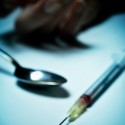Scientists Find Genes That Influence Brain Wave Patterns
Scientists have identified new genes and pathways that influence an individual’s typical pattern of brain electrical activity, a trait that may serve as a useful surrogate marker for more genetically complex traits and diseases. One of the genes, for example, was found to be associated with alcoholism.
Washington, D.C. – infoZine – A report of the findings by researchers at the National Institute on Alcohol Abuse and Alcoholism (NIAAA), part of the National Institutes of Health, appears online this week in the Proceedings of the National Academy of Sciences.
“This important advance sustains our hope for the potential of genome-wide association techniques to further the study of complex genetic disorders such as alcoholism,” notes NIAAA Acting Director Kenneth R. Warren, Ph.D. Genome-wide association studies (GWAS) allow researchers to rapidly scan the complete set of DNA of many individuals to find genetic variations associated with a particular disease or condition.
“One of the challenges in identifying the genes that underlie alcoholism is the large degree of genetic and environmental variability associated with the disease,” explains first author Colin A. Hodgkinson, Ph.D., a geneticist in the NIAAA Laboratory of Neurogenetics. “Such variability has impeded even GWAS efforts to identify alcoholism genes. To overcome those difficulties, we used GWAS techniques to search for genetic variants related to EEG, or brain wave, patterns in a comparatively small sample of several hundred Native American individuals.”
As unique as an individual’s fingerprints, EEG (electroencephalogram) patterns are highly heritable, and have been associated with alcoholism and other psychiatric disorders. The high degree of genetic similarity and common environmental exposure shared by the Native American individuals that comprised the study sample aided this search.
Working with David Goldman, M.D., chief of the NIAAA Laboratory of Neurogenetics, Dr. Hodgkinson and colleagues identified multiple genes that were associated with the amplitude, or height, of two of the four characteristic electrical frequencies that make up the wave patterns found in EEG recordings.
One of the genes, for example, was found to account for nearly 9 percent of the EEG theta wave variability seen in the Native American sample. Theta waves are relatively low-frequency brain waves, and previous studies have shown that their amplitude is altered among alcoholics. The researchers then showed that the same gene accounted for about 4 percent of theta wave variability in a sample of North American whites. The gene’s diminished effect among whites, they noted, was likely a reflection of the greater genetic variability present in that sample. In the same study Dr. Goldman’s group went on to show that genetic variation in one of the genes identified for theta wave variability was also associated with an altered risk for alcoholism.
“While our main findings are for genes that influence EEG wave patterns, this study represents an important step toward the use of EEG as a surrogate marker for alcoholism,” notes Dr. Goldman. “It also reveals new molecular pathways involved in addiction processes.”
source: Kansas City Info
